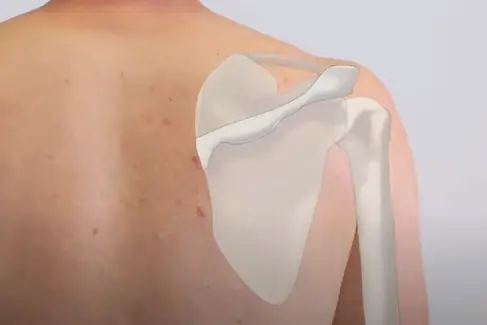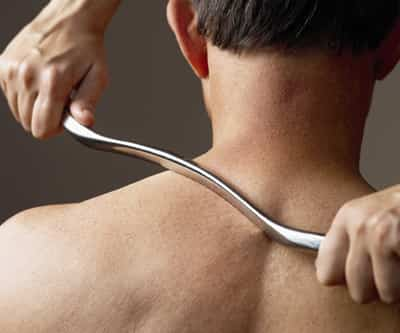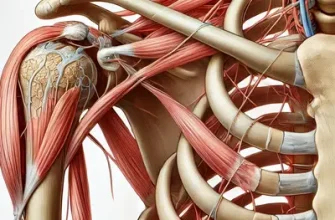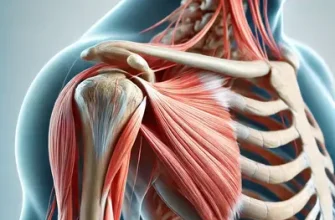The torn rotator cuff refers to a medical condition that can lead to severe pain during nighttime. It entails a rupture in the tendons of the shoulder’s rotator cuff, a group of muscles and tendons responsible for supporting and facilitating shoulder movement. This tear can cause significant discomfort, especially when trying to sleep.
Causes
There are several causes that can lead to a torn rotator cuff, including:
- Acute Injury: A tear can occur from a sudden and strong impact or from falling on an outstretched arm.
- Degenerative Changes: As individuals age, their tendons can undergo deterioration, increasing their vulnerability to tears.
- Repetitive Overuse: Participating in repetitive arm movements like throwing a ball or painting can eventually cause the tendons to gradually deteriorate, resulting in a tear.
Symptoms
Common symptoms of a torn rotator cuff include:
- Shoulder Pain: The most notable symptom is intense shoulder pain, especially at night when lying on the affected side. This pain can also radiate down the arm.
- Decreased Range of Motion: Individuals may experience difficulty raising their arm or performing overhead movements.
- Weakness: A tear in the rotator cuff can weaken the affected arm, making it challenging to perform tasks that require strength.
- Clicking or Popping Sensation: When individuals move their arm, they may become aware of a clicking or popping feeling in the shoulder joint.
Pain at Night
Why does a torn rotator cuff hurt so much at night? Several factors contribute to this phenomenon:
- Sleeping Position: Lying on the affected side can place additional pressure on the torn tendons, exacerbating the pain.
- Inflammation: Inflammatory processes tend to be more active at night, contributing to increased swelling and pain in the shoulder.
- Inactivity: During the day, moving around can help alleviate pain by increasing blood flow to the affected area. However, when asleep, the lack of movement can intensify discomfort.
- Muscle Impingement: When we lie down, the muscles of the rotator cuff can get squeezed between the upper arm bone and the shoulder blade, causing more irritation and discomfort.
Treatment Options
Treatment for a torn rotator cuff may involve:
- Rest and Ice: You can alleviate inflammation and pain by resting your shoulder and using ice packs.
- Physical Therapy: Targeted exercises can strengthen the surrounding muscles, alleviating stress on the torn tendon and promoting healing.
- Pain Medication: Pain and inflammation can be managed with the use of over-the-counter pain relievers or medications that are prescribed by a doctor.
- Corticosteroid Injections: If the condition gets worse, a doctor may recommend injecting corticosteroids directly into the shoulder joint to reduce inflammation and relieve pain.
- Surgery: If conservative treatments fail, surgical intervention may be necessary to repair the torn tendon.
Prevention
To prevent a torn rotator cuff, individuals can engage in the following habits:
- Proper Technique: To prevent the shoulder joint from being excessively strained, it is important to use correct technique when engaging in sports or activities that require repetitive arm movements.
- Warm-up and Stretch: Prior to engaging in physical activities, it is crucial to warm up and stretch the shoulder muscles to prepare them for movement.
- Gradual Progression: When starting a new exercise routine, gradually increase intensity and duration to allow the muscles and tendons to adjust to the increased stress.
Final Word
Severe pain, especially during nighttime, can result from a torn rotator cuff. Knowing the reasons, signs, and available remedies can aid people in dealing with their discomfort and finding suitable medical assistance when needed. Taking preventive measures, such as using correct technique and gradually increasing intensity, is vital for preserving shoulder well-being and preventing this incapacitating condition.









